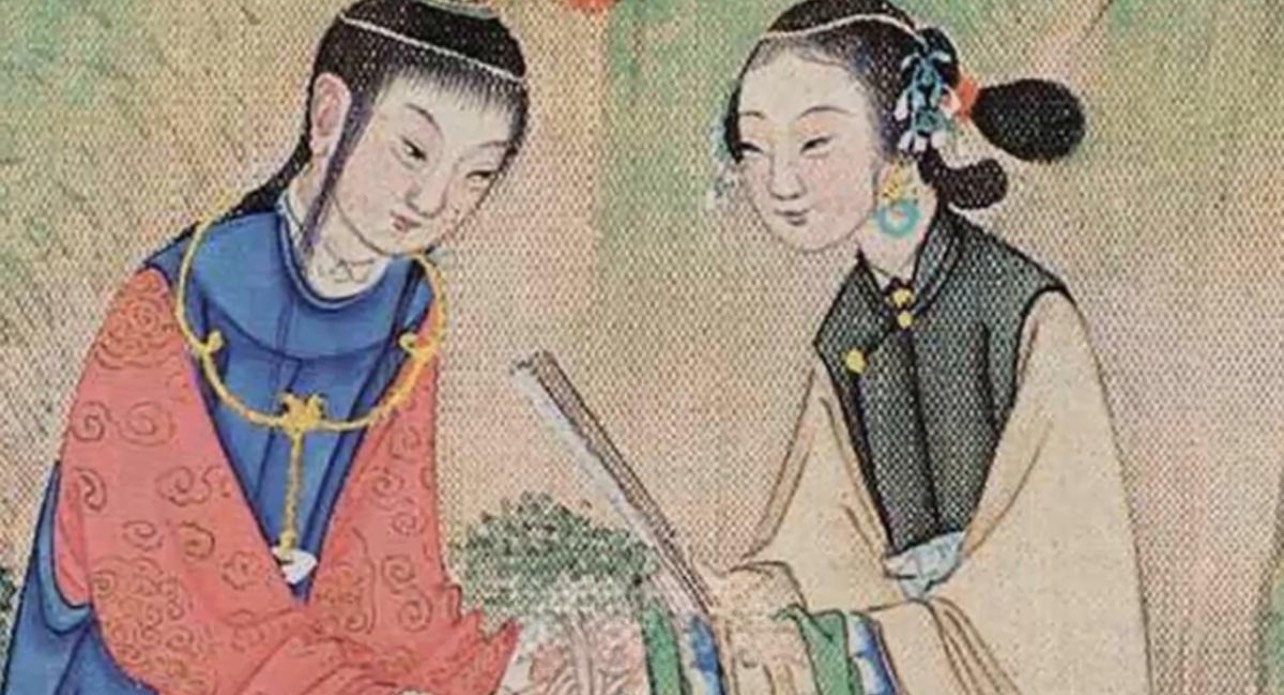Traditional culture has a long history, has an extremely profound and rich content. The saying of the mouth is often handed down in folklore, but continuous but the meaning is extremely profound, can see the wisdom, wisdom and wittyness of ancient ancient people. Among them is a proverb: "Women bow their heads, men puffed up their chest, a wealthy life half a life", why did the ancients have such a way to compare? Today let's find out the meaning of this sentence.
1. What is a bowed woman?

In the eyes of ancient people in the past, women talk often often and cautious, if they keep up their necks when communicating will make others feel narcissistic. Conversely, if you often nodded and smiled, it would bring a friendly, Doan Trang and Hien Thuc feeling. Especially, if someone is talking, a woman with a charisma that looks like this will make people feel her listen, she also has respect. In the past, in the process of communication, the woman would often bow down slightly to show respect, discreet and hidden. This type of woman is considered to be an educated and cultivated ethics, the three virtues, the future will definitely be a good wife. Besides, women who bow their head will receive the attachment of men who have good living conditions. Therefore, the ancient people said that such a woman like that in her life is safe, enjoying a rich life. Women are feng shui of the family, a gentle woman like water, water is a manifestation of fortune. Therefore, the family has a gentle wife like water will be fortune and fortune. Nowadays, good women who have achievements, rich inner, knowledgeable and humble know how to "bow" at the right time. This "bow" is not cowardly or weak, but shows humility, humility,
2. Men puffed up their chest

Men puffed up the chest pointing the man responsible. Compared to a man who bowed his head, a man raised his head high that could definitely show confidence, making people feel arrogant and assertive, and can also give the opponent a reliable feeling. In the past, to evaluate whether a man deserves to entrust his whole life or not, he also attaches great importance to whether the man is responsible for the burden of the family or not. The man who puffed up his chest will also give people a feeling full of integrity, difficulties will be able to stand up bravely, such a man can start a business, get accomplishments, can also row against it. , protection of households.
3. A lifetime of half -life idle

Umbrella Ancient or modern, to measure whether a person is happy or not just looking at their life. Such people, their previous half of the life was very hard -working, responsible, later naturally had a career, passed on to the next life, enjoyed the pleasure of old age, a peaceful life, light like clouds . Of course, society is very different now so the standards are constantly changing. Just like women in the office, sometimes if not strong will be lost, difficult to move forward. However, the many life experiences and intelligence of the ancients are worth learning.
The great mettle determines the great battle. From the past until now, the people who make a great career are people with great mettle. Mettle is a peak form of education. The vast, constant learning sea will be the time when we reach the successful shore, the higher you stand on.

What is called a great mettle?
Manh Tu said: “In the vast place of the people, standing in the main position of the people, implementing the great religion of the people, the attainment of helping the people, the unexpectedness, the implementation of the religion on their own. Rich is not fascinated, poor and unable to shake, the power cannot be subdued, it is the great man. ” The above statement is: Action needs to be frank, calm, clear and clear. When visible, it is helpful to people throughout the world, when miserable, they can repair themselves. Not being fascinated by wealth, when rich, it is not arrogant lavish lust, when poor nor changes the gas. When the power is threatened to oppress, using the seductive benefits will not subdue, not changing the secretion. That is the person with true mettle. The sky is vast, tolerant to the immense sky. Large soil, nurturing spirituality. The sea is large, tolerating thousands of streams. The great mettle, the sky, the earth, the river, and the sea contain both in their hearts.
People with great mettle treatment
The book Thai Dam wrote: “The way to give a step is high, backing down is the root to move forward. Tolerance to people is blessing, benefit for people is the foundation for themselves. ” People with great mettle, the heart is broad, the people treat the world wide and spacious, not compared to the measurement of the loss of loss; It is better to yield a little more to lose peace, from which to build a great deal, to accumulate blessing and blessing for yourself, the more the life of life goes. The great mettle, the heart of the heart, anytime, anywhere knows the amount of things for others, creating a big situation, also accumulating great blessings. Need to nourish your mettle, mettle is not a personality, it is a form of human charisma. The mettle is the temperament of each person, what is the expression of the inner mind, the invisible power emanating from the human qualities. It is not innate but must be through training, accumulating gradually in everyday life, is a kind of human cognition in treating people, revealing nature, not wanting to create is to create. Okay.
People with polite communication, peaceful behavior, elegant attitude, not in a hurry, not lazy, not dull, dumbfounded when there is a need to do. They recognize the problem at a higher level, make others respect, they are like a good book that always attracts readers, always interesting, attractive from every aspect and when they are picked up, they will not read it will not Want to stop, the more you read it, the better. Mettle is a simple form of personality, without gums, fame, and pure mind, a kind of talent that is always closely attached to you, no one can take away, revealing it will always be praised by everyone. Praise, praise, hide to help yourself always leisurely.
People with great mettle smiling at the wind and wind
People with great mettle, the generous personality, not deep into the fame and loss, the heart is not involved. It is also the realm of Tran Mi Cong in the small Song U Ky: “Being charismatic or humiliated is not terrified, watching the flowers fall on the threshold; Going or staying without paying attention, watching the clouds at the same time. ” Everyone's life has to go through many bitter hardships, the more times when the wind is buried, the more you need to expand your heart, smiling and saying: Only those in the years of misery can still keep the liberal manner, will have a high life of the sea. There is Van Nhan said: "When happy smiling, you have to learn to smile in hard time." People with great mettle with a vast heart will never turn back to find the yellow petals the previous day, they will happily follow the pursuit of why sparkling tomorrow. Anything should be spacious and opposite, calmly living, happy will be permanent on the lips.
People with great mettle does not fight
Lao Tzu Writing in the Ethics of the Sutta is: "The religion of the Saint does not compete". The great mettle lives a true life, suffering without resentment, facing fame and fame without fighting. So saying: "Because there is no picture, no one can fight with them all over the world." The person who made a great karma, did not compete for a sentence of gas. So there is a great building in a great karma, you must first nurture a great mettle, with a spirit like a wide sea to tolerate hundreds of rivers, hugging Nhat Nguyet, with a generous amount Spacious and spacious air. People with great mettle, life with great outcome. Want to become a great talent, so the career is great, first of all need to nurture great mettle.
